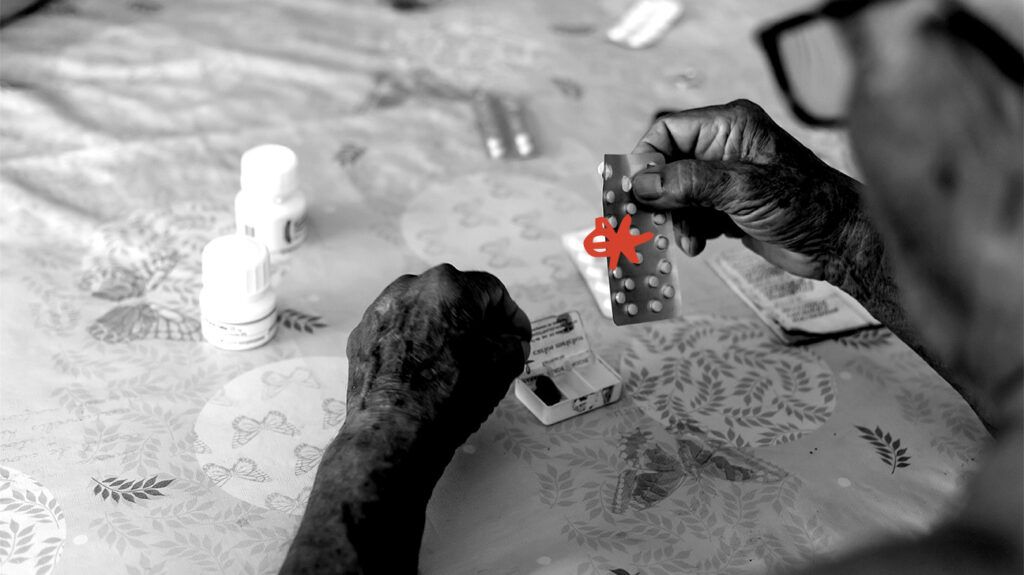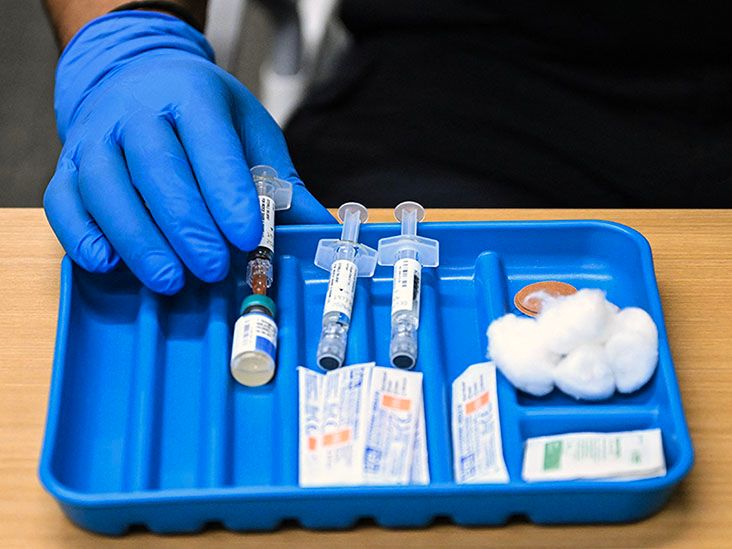Mental health professionals may recommend antipsychotic medications off-label to help treat anxiety disorders.
Using a prescription medication off-label means using it for other than its intended purpose. This is a common practice for many drugs.
Generally, treating anxiety disorders involves psychotherapy, medication, or a combination of the two. Common medications include antidepressants, antianxiety medications, and beta-blockers.
However, some evidence suggests antipsychotic medications can help treat anxiety, especially if it co-occurs with other mental health conditions.

Anxiety disorders are among the most common mental health conditions in the United States.
Almost all antipsychotic medications do not have approval from the Food and Drug Administration (FDA) for the treatment of anxiety disorders. The one exception to this is trifluoperazine.
However, there is ongoing off-label use of both first-generation (typical) antipsychotics and second-generation (atypical) antipsychotics to treat anxiety disorders.
A 2024 review examined the prevalence of antipsychotic use in inpatient and outpatient psychiatric facilities among people with anxiety disorders. The review found that 53.6% of inpatient individuals and 16.6% of outpatient individuals received these medications.
The review authors note that the rate of prescription appeared to vary by the type of anxiety disorder. They also wrote that comorbidity or co-occurrence of other mental health conditions may also explain some of the prescriptions of antipsychotics.
Learn more about antipsychotic medications.
Antipsychotic medications influence the flow of information between brain cells. They block certain types of neurotransmitters, which are chemicals that allow neurons to communicate throughout the body.
All antipsychotic medications block the neurotransmitter dopamine, while others also block other neurotransmitters, such as serotonin.
Antipsychotics help with symptoms of psychosis, such as hallucinations and delusions. However, they can also help stabilize mood in bipolar disorder and reduce anxiety in anxiety disorders.
Read about atypical antipsychotics.
Generally, doctors only recommend antipsychotics for anxiety disorders when other treatments have been ineffective.
Currently, trifluoperazine is the only antipsychotic medication with approval from the FDA for treating anxiety disorders.
However, other healthcare professionals have recommended antipsychotics on an off-label basis to treat various anxiety disorders. Canadian guidelines for anxiety and related disorders recommend the following antipsychotics for generalized anxiety disorder and panic disorder:
- olanzapine
- aripiprazole
- risperidone
Doctors may also suggest risperidone as an added treatment for seasonal affective disorder.
However, further research is necessary on the use of antipsychotics for anxiety disorders.
What is the best medication for severe anxiety?
Typically, medications for anxiety disorders include antidepressants, antianxiety medications, and beta-blockers. However, certain medications
What happens if you take antipsychotics and do not need them?
Antipsychotic medications can be harmful if a person takes them without needing them. They can lead to serious side effects such as anxiety, loss of appetite or thirst, restlessness, and excessive sleeping. Unnecessarily taking antipsychotics can also potentially be fatal.
Anxiety resources
Visit our dedicated hub for more research-backed information and in-depth resources on anxiety.
Anxiety disorders are among the most common mental health conditions in the United States. Typical treatment involves psychotherapy, medication, or a combination of the two.
Medications for anxiety disorders generally include antidepressants, antianxiety medications, and beta-blockers.
If other treatments are ineffective, a healthcare professional may recommend the use of antipsychotic medications to help manage anxiety disorders. Trifluoperazine is the only antipsychotic with approval from the Food and Drug Administration (FDA) to treat anxiety. However, other doctors may recommend other types of antipsychotics as off-label treatments for anxiety disorders.
Individuals can work closely with a healthcare professional to find the most effective treatments for them.

